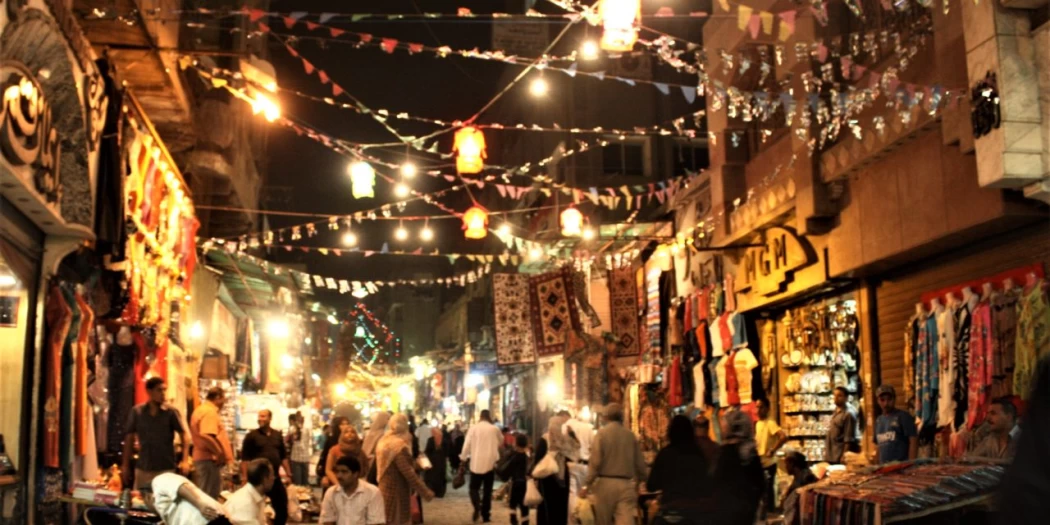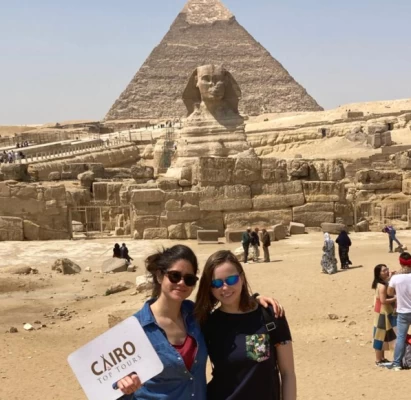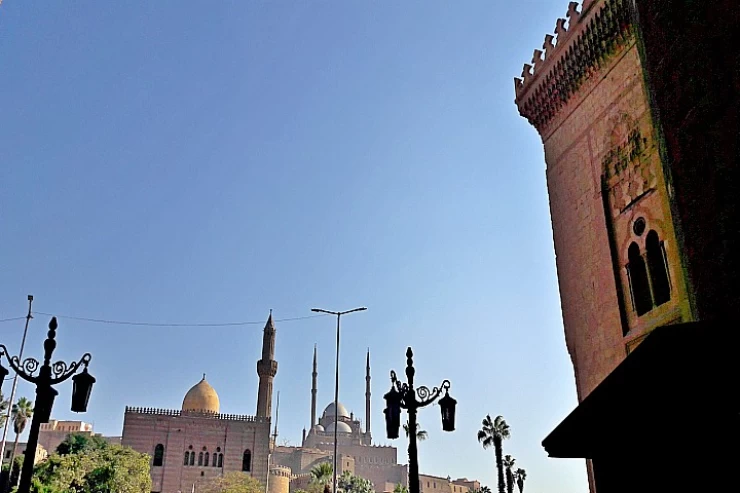
Ramadan in Egitto
Ramadan in Egitto
La parola Ramadan deriva dalla radice araba ramiḍa o ar-ramaḍ, "il caldo ardente", "siccità". Il mese di Ramadan è dove è stato rivelato il Corano. Guida per l'umanità, chiara prova delle linee guida, standard (giusto e sbagliato).dovresti provare Ramadan in Egitto,è sicuramente divertente.
Il Ramadan è il nono mese dell'anno lunare islamico. È tempo di digiuno, benedizione e preghiere per commemorare i primi versetti del Sacro Corano del Profeta Muhammad per opera dello Spirito Santo Gabriele. Poiché è un momento in cui i musulmani si astengono dal mangiare durante le ore diurne come sacrificio per ricordare loro le sfide dei poveri.
Nonostante i tempi simili in se stessi, differiscono nella bontà e nella guida che ha luogo in loro, e Dio Onnipotente ha scelto il mese benedetto del Ramadan con una serie di vantaggi che gli fanno guadagnare un santuario e aumentano l'appetito delle persone per il bene funziona durante esso,
Quando pianifichi i tuoi viaggi in Egitto durante il Ramadan, noterai che una delle caratteristiche del mese è che Dio Onnipotente ha rivelato il suo saggio libro Al fine di purificare i cuori e riempire le menti di saggezza, dove Dio Onnipotente ha inviato il Sacro Corano ' un al cielo più basso in una frase, o l'inizio della discesa del Corano in esso, quindi i suoi versi furono rivelati secondo ciò che richiede la saggezza di Dio Onnipotente e ciò che distingue il mese di Ramadan che Dio Onnipotente ha imposto I musulmani digiunano durante il suo giorno Va notato che il digiuno ha grandi implicazioni per i servi, poiché purifica la loro morale, purifica i loro cuori e ripara se stessi
La caratteristica più distintiva di questo mese è la presenza della notte più grande, che è la Notte del Potere, in cui il Sacro Corano è stato rivelato al nostro maestro Muhammad - che Dio lo benedica e gli conceda la pace - e la sua discesa era in l'anno seicentodieci d.C., e poi il Messaggero - che Dio lo benedica e gli conceda la pace - era presente nella grotta di Hira, e in questo, Il luogo fu rivelato dalla rivelazione di Gabriele - su di lui sia la pace -, e il primo verso che gli fu rivelato è il detto Onnipotente: "Leggi nel nome del tuo Signore che ha creato", e il Sacro Corano fu rivelato immediatamente nella Notte del Potere che era la sua discesa dalla tavoletta conservata.
Il motivo per nominare questo mese è dovuto al fatto che la parola Ramadan deriva dall'origine del Ramadan, che è definita come intensità e forza del calore, e la sua derivazione si basa sul peso del Ramadan, il che significa che è diventato più caldo, e il caldo è passato nel senso che il caldo è aumentato di intensità su di loro, e in quel momento hanno trasferito tutti i nomi dei mesi dalla lingua che era prevalente ai vecchi tempi, e hanno iniziato a chiamatelo con nomi legati ai tempi, e questo corrisponde al Ramadan durante i giorni del Ramadan, che significa caldo estremo e forte, e da allora è stato chiamato Ramadan.
Un musulmano digiuna durante il Ramadan, ed è una delle preghiere obbligatorie che sono state imposte ai musulmani, ed è uno dei cinque pilastri dell'Islam, con cui la religione islamica è valida solo con essa. , E questa tempistica è specificata per tutte le parti della Terra con una differenza nella differenza temporale. Uno dei vantaggi più importanti del digiuno è che funziona per purificare e purificare l'anima umana e avvicinarsi a Dio Onnipotente impegnandosi nell'imposizione del digiuno, e in questo grande mese tutte le porte dell'Inferno sono chiuse e le porte della misericordia e il perdono è aperto ai musulmani,
Le esenzioni al digiuno includono viaggi, mestruazioni, malattie gravi, gravidanza e allattamento. Tuttavia, molti musulmani con condizioni mediche insistono sul digiuno per soddisfare i loro bisogni spirituali, sebbene non sia raccomandato dagli hadith. Chi non è in grado di digiunare è obbligato a recuperare i giorni persi in seguito.
Il suhur è il pasto consumato la mattina presto dai musulmani prima del digiuno (sawm), prima dell'alba durante o al di fuori del mese islamico del Ramadan. Il pasto viene consumato prima della preghiera fajr. Suhur è abbinato all'iftar come pasto serale, durante il Ramadan, sostituendo i tradizionali tre pasti al giorno (colazione, pranzo e cena), sebbene in alcuni luoghi la cena venga consumata anche dopo l'iftar più tardi durante la notte.
Essendo l'ultimo pasto consumato dai musulmani prima del digiuno dall'alba al tramonto durante il mese di Ramadan, il Suhur è considerato dalle tradizioni islamiche un beneficio delle benedizioni in quanto consente alla persona che digiuna di evitare l'irritabilità o la debolezza causata dal digiuno. Secondo un hadith di Sahih al-Bukhari, Anas ibn Malik ha narrato: "Il Profeta ha detto, 'prendi suhoor perché c'è una benedizione in esso'".
Il nostro team vi aiuterà a viaggiare in Egitto e sperimentare il tempo soleggiato del nostro bel paese durante la Pasqua, grazie alla loro vasta conoscenza del turismo egiziano. Puoi personalizzare il tuo pacchetto selezionando uno dei nostri pacchetti di viaggio in Egitto o sfruttare al massimo il tuo tempo in una breve visita, imparando di più sulla storia egiziana e le sue affascinanti storie e vivendola attraverso tour privati al Cairo. Partecipa a uno dei nostri tour economici in Egitto attraverso il deserto del Sahara, come i tour di Siwa dal Cairo, per esempio, o preferibilmente i tour nel Deserto Bianco d'Egitto. Scoprite i nostri tour di un giorno ad Assuan, fate una gita di un giorno da Assuan ad Abu Simbel, o viaggiate via terra e godetevi i nostri tour di un giorno a Luxor per vedere gli incredibili templi di Karnak, il Tempio di Luxor, il Tempio di Hatshepsut, e vedete le meravigliose tombe splendidamente dipinte nella Valle dei Re, questo è il luogo dove i re e i governanti del nuovo regno riposano in pace e imparate i loro riti di mummificazione e sepoltura.
The word Ramadan is derived from the Arabic root ramiḍa or ar-ramaḍ, "the burning heat" and "drought." The month of Ramadan is when the Qur'an is revealed. Guidance for humanity, clear proof of guidelines, standards (right and wrong).
Ramadan in Egypt: A Month of Spirituality, Tradition, and Celebration
Ramadan is a time of utmost reverence for Muslims all over the world, and in Egypt, the month is even more adored by its people. It is full of fasting, prayers, charity work, and get-togethers and spans the period that celebrates the initial salutation of the Quran to the prophet Muhammad. Such is the country’s richness in her Islamic cultural values combined with the aliveness of her people’s way of life that each year during the month of Ramadan, Egypt becomes an enchanting wonderland. Where the old ways of observing the month complement the new festivities in a very beautiful way. The cities, the houses, and the temples are religiously, socially, and emotionally vibrant, filled with gaiety and togetherness.
Rush needs to ensure that the primary organizations and institutions in the society are nourished with soft power values, and the modern leaders of this country possess those values that were targeted for localization of the conceptual ones. Also, the descriptive, definition-based ideas were localized.
There is more to Ramadan in Egypt than simply refraining from eating and drinking from dawn to dusk—it is a season to dwell upon one’s self, grow in one’s spirituality, and reconnect with faith. For the month, Egyptians also spend more time praying, reading the Quran, and doing good work. The places of worship are crowded with people, especially during the Taraweeh prayers that are conducted every night after the Isha prayer.
In Cairo, the Al-Azhar Mosque has remained one of the venues for such congregations, likewise the imposing Mosque of Amr ibn al-As, which is the oldest mosque in Africa. There comes a time in the city when the cry of Adhan is heard so loud, signifying a reminder of the sacredness of that particular month. Even to the busy people, it seems there is a posture of calm and respect within the city that is a capital.
Iftar: A Celebration of Community and Generosity
As the twilight descends, the peculiar period termed ‘Iftar’ commences, marking the conclusion of an established fast for the day. There is a sweet smell of the local delicacies of Ramadan wafting from the kitchens and restaurants in the Egyptian territories. Families come together at the Iftar for the essence of waving the fast and benefiting from gluttony. The initial one is taken with dates and a glass of water like the prophet Muhammad used to have before any meal—there is a range of Egyptian dishes served soon after.
Examples of the most preferable Iftar meals include molokhia (African gaea soup), mahshi (stuffed with rice and seasoning vegetables), foul (a dish of boiled fava beans), and koshary (a dish made of rice and noodles served with lentil sauce). Ramadan is not only experienced with food, which is why sweet dishes such as kunfa (syrup in a thin crust filled with cream or cheese), basbousa (syrup-soaked semolina cake), and atayef (stuffed mini pancakes) are adored in Egypt.
Crossing the bounds of in-house courtesy, Ramadan is also a season of selfless benevolence. Across the land of Egypt, there are Mawa’id al-Rahman, or tables of mercy, placed in different street corners and localities to provide free Iftar meals to all those who come. This practice of sharing and giving extends to the overall sense of community and charity that Ramadan represents.
As the lingering shadows of night hang around just before the break of dawn, a cherished Egyptian custom comes into play. The Mesaharati is a man who walks around the streets hitting a drum and calling people to wake for the meal of Suhur, which helps sustain Muslims during the fast before dawn. His well-articulated yells, customarily with the names of people residing in the locality, however, also vibrate in the narrow alleys and still areas.
This time-honored practice, which many people have continued to engage in, makes Ramadan in Egypt more attractive. In some places, children also costlessly attach their respective Mesaharati and their pleasant early morning activities.
The Fanoos: Ramadan’s Glowing Symbol
One of the most delightful things about Ramadan in Egypt is how the colored lanterns are found in homes, mosques, and even the streets throughout the holy month. These fans represent the month of Ramadan in Egypt, and their use can be traced back to the Fatimid period. It is said that the people came out with fanooses in their hands when the Fatimid ceaser al-Mu’izz li-Din Allah entered Cairo in the holy month, thus the custom has been there ever since.
At the present time, these beautiful fanooses have reached not only the capital but also all other cities, turning them into an enchanting holiday. Certainly, families decorate their houses with fanooses, while children perform wearing them and singing riddles about the fasting month, and it works magically.
Ramadan Nights: A Time of Celebration
These streets of Egypt do not stay quiet after the Iftar meal is over. The scope of Ramadan night extends to pleasure, interaction, and a variety of events. The cafes, the restaurants, and the shops are mostly open till dawn, allowing the Egyptians to enjoy themselves with music, take a walk amidst the bright lights if they feel like it, or simply unstress themselves.
Kheimaat Ramadan-erected cultural tents are found scattered in the city. Offering various entertainment activities and Suhur foods. Within these tents, fringe stages are further enlivened with entertainment in the form of Tannoura (Sufi whirling dervishes), music, poetry, and many other forms of live artistic expression. There is no look back in how most of the Egyptians viewed those days when pampering the senses was as important as taking part in spiritual elevation.
Ramadan is the culmination period marked by Eid al-Fitr, which in English translates to the “Festival of Breaking the Fast.” Various festivities accompany this day, the most customary being the special prayers offered at mosques and open spaces throughout the cities of Egypt. Families gather to rejoice with meals, presents, and new attire, and children are offered Eideya, a form of monetary present.
In essence, Eid al-Fitr encompasses happiness and thanksgiving for the ability to finish the fasting intervals. This period is also to appreciate the necessity for the continuation of those activities, as Egyptians also engage in charity by giving food and clothes to the poor.
Ramadan in Egypt
Ramadan is the ninth month of the Islamic lunar year. It is time for fasting, blessing, and prayers to commemorate the first verses of the Holy Qur’an of the Prophet Muhammad by the Holy Spirit Gabriel. It is a time when Muslims refrain from eating during daylight hours as a sacrifice to remind them of the challenges of the poor.
Despite the similar times themselves, they differ in the goodness and the guidance that takes place in them, and God Almighty has singled out the blessed month of Ramadan with many advantages that earn it a sanctuary and increase people's appetite for good works during it.
Traveling and Visiting Egypt during Ramadan Month
When you plan your tours to Egypt during Ramadan, you will notice that one of the characteristics of the month is that God Almighty revealed his wise book. To purify the hearts and fill the minds with wisdom, where God Almighty sent the Holy Qur’an to the lowest heaven in one sentence or the beginning of the descent of the Qur’an in it, then his verses were revealed according to what the wisdom of God Almighty requires and what distinguishes the month of Ramadan that God Almighty imposed on Muslims fasting during its day. It should be noted that fasting has great implications for servants, as he purifies their morals, cleanses their hearts, and repairs themselves.
The most distinguishing feature of the Ramadan Festival in Egypt is the presence of the greatest night, which is the Night of Power, in which the Holy Qur’an was revealed to our master Muhammad—may God bless him and grant him peace—and his descent was in the year six hundred and ten AD, and then the Messenger—may God bless him and grant him peace—was present in the cave of Hira, and in this, the place was revealed by the revelation of Gabriel—upon him be peace—and the first verse was revealed to him is the Almighty saying: "Read in the name of your Lord who created," and the Holy Qur’an was revealed at once in the Night of Power, which was its descent from the preserved tablet.
The reason for naming this month is because the word Ramadan is derived from the origin of Ramadan, which is defined as the intensity and strength of the heat, and its derivation is based on the weight of Ramadan, which means that it has become hotter, and the heat has passed in the sense that the heat has increased in intensity on them, and at that time they have transferred all the names of the months from the language that was prevalent in the old days, and they began to call it names related to the times, and this corresponds to Ramadan during the days of Ramadan, which means extreme heat and strong, and since then it was called Ramadan.
Ramadan Traditions in Egypt and rites consist of Muslims fast during Ramadan, it is one of the obligatory prayers that was imposed on Muslims, and it is one of the five pillars of Islam, which the Islamic religion is only valid. This timing is specified for all parts of the Earth with a difference in timing. Among the most important benefits of fasting is that it works to purify the human soul and draw closer to God Almighty by committing to the imposition of fasting, and in this great month all the gates of Hell are closed and the doors of mercy and forgiveness are opened to Muslims.
Exemptions to fasting include travel, menstruation, severe illness, pregnancy, and breastfeeding. However, many Muslims with medical conditions insist on fasting to satisfy their spiritual needs, although it is not recommended by hadith. Those unable to fast are obligated to make up the missed days later.

















